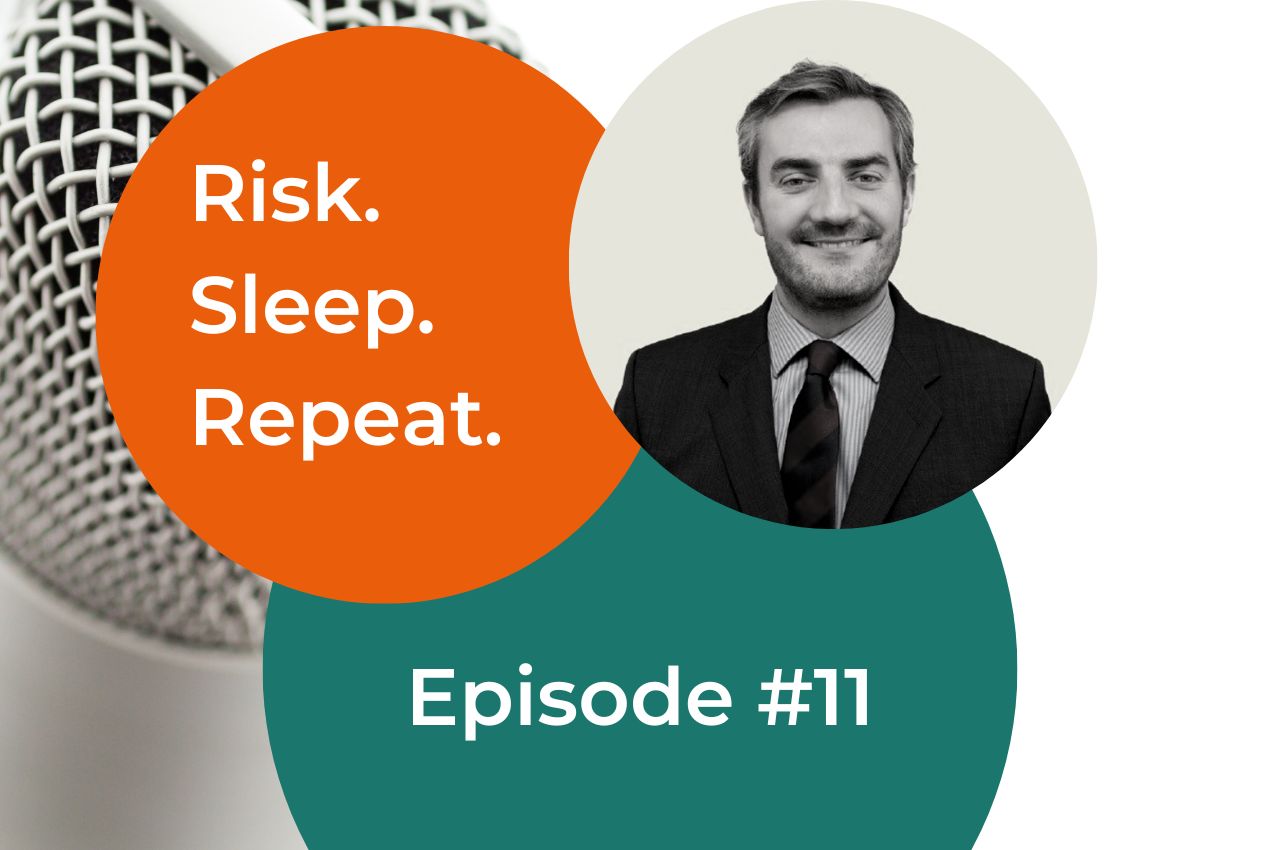
In this episode we are joined by Christian Harris, Founder of Slip Safety Services. ‘Slipologist’ Christian Harris became passionate about preventing accidents and injuries due to suffering from a severe accident himself. He is on a mission to prevent 500,000+ slip and fall accidents annually across the globe.
This conversation looks at how to move forward after a life-changing accident, using client’s missions and values in the context of safety, dealing with internal pressure and the importance of trust and growth within business.
Here is a snippet of the conversation between Christian and Adam:
Q1: How can we improve the stigma attached with the word ‘safety’?
It’s something that I am planning to do a lot of work on, which is to try to draw the link between safety inputs and business performance and profitability.
My view is that if you speak to any CEO or board about safety, you’re kind of losing them as soon as you mentioned the word safety. However, if you start to talk to them about high performance, then their ears prick up and their eyes go wide. They’re all excited because everybody buys into the fact that you want a high-performance team. I want a performance team in my business; I’m sure you do in yours.
So to me, what we need to do as an industry is to evidence, document and prove irrefutably the link between what we can deliver in terms of safety through the inputs that we can provide, and the outcome of high performance. We intuitively all know that that link exists, but there’s a lack of proof and evidence. I think for the safety community we should be banding together and joining up to try to create as much evidence around that link as possible.
It doesn’t have to be something that’s from our company to prove that point. A very good case study from another business could be the tipping point to make a difference and change people’s attitudes. I think there’s a lot of work we need to do around that.
Q2: How do you spend some time understanding how a business or an organisation runs if you’ve never been exposed to finance departments? And how do people deal with budgets?
It’s a travesty, in my opinion, that only about 30% of safety professionals have a budget that they control, or any sort of meaningful budget.
I think, from a business management perspective, it would be greatly beneficial to give more trust, accountability and management of budget to the safety team, and actually allow them to do what they need to do without having to necessarily play the role of kind of advocate and champion. Allow them to actually run a P&l or make some decisions be accountable.
I think that would give you great exposure from the safety professionals perspective into how the wider business works as well. So that’s something I’d really recommend people sort of strive to achieve.
Q3: How can they focus their development on outside of their subject matter expertise?
I think having an open mind, being curious is really important and asking the right kinds of questions. Think about who can help you get the knowledge that you feel you might need, or who can you collaborate with, whether that be internally or externally with key stakeholders.
If you’re in sales, one of the key things you get taught is to figure out not only what’s in it for the organisation, as a whole, but also what’s in it for that person that needs to make that decision. Think about what benefits you can bring them, or what might encourage them to help you, because they’re going to see some kind of benefit from it as well, over and above just that sort of altruistic benefit of helping out.
Build those alliances between your internal and external stakeholders through having that right kind of mindset, being open to taking the risk and asking questions, because risk, remember, should be not just seen as a negative thing as a positive thing, as well.
Think about how you can build that relationship with them by supporting them to achieve some kind of objectives that they’ve got as well. If you can make that a win win relationship, then you’ll get back exactly what you present. So, from a philosophical sort of perspective, those are some of the things that I would advise people to do.
Q4: How do you deal with your internal pressures?
I’m not immune to that kind of self-talk or the self-sabotage or the, as you say, the inner Chimp, or the sort of devil on your shoulder or whatever analogy you want to use. That happens to me all the time – I just have to try to lift myself out of that perspective, by focusing on, you know, where are we going? What am I doing? Why is it important that I do it, rather than someone else doing it?
For example, what can I bring that nobody else can bring to this particular talk or this discussion? If you can get yourself into that sort of higher state of thinking, it’s not easy to do.
I think that’s where having clarity over vision, mission, values is really important, and recapping that having a plan. I don’t go to the extent of writing down what I am going to achieve in this 12 months, but I kind of have a longer term vision that I’m aspiring to. That helps to kind of keep me aligned to what I’m doing.
If you get negative thinking in your brain sometimes that can be a good thing, because it makes you think again about things and so you shouldn’t just try and discount it. But the internal discussion is, yes, but x y z, this is what I’m up to, this is where I’m going. This is why this is important. This is why I should be the person to do it and why I’d be doing a disservice to others if I didn’t do this today. Then you can have that kind of internal discussion and you’ll find that that side of the argument will typically win. If you have that kind of logical discussion, saying that I am a believer in gut feeling.
Whenever I’ve made decisions against my gut in the past, I’ve more often than not been proven wrong. Please listen to your gut, particularly about other people. I’ve had some bad experiences in business before, where I’ve trusted people, and that’s come back to haunt me. I’ve trusted people against my gut instinct.
I think there’s a difference between your gut instinct and this sort of negative talk. But I think it is important to sort of listen to your body and understand how you’re feeling and what you’re doing. I’ll give you one example. Now I have the ability to do this, because I run my own business, not everybody can do this. But I’m quite attuned now to how I’m feeling. Actually, humans are not productive all the time, humans are fallible. And I now know, if I’m having one of those day where actually I’m not going to be very productive, I’ll just kind of take the opportunity to go for a walk or give another game of snooker or, you know, call a friend or something like that, and just trying to release myself from that situation to try to kind of build up a store of more positive energy from somewhere else to try to come back to the task. I think it’s important to kind of understand how you’re feeling and listen to yourself and deal with that in an inappropriate way, as well.
Presenteeism is a cancer on productivity. We talked a bit about productivity and how important productivity is and how everybody wants high performance. So, recognising that in yourself is a great trait, I believe. But also, when you’re in the position of managing other people, allowing them to recognise that in themselves is a very valuable thing. You’re better off having somebody take the morning off, and recharges their batteries and gets the energy back, and then come back and have a productive afternoon, as opposed to when somebody’s sitting at their desk for the whole day, being present, but not actually doing anything.
They’re going to be happier, more motivated, the outputs of their work will be better in the afternoon, that they are happy and motivated and productive. And overall, it’s better.
